Oil Stop Leak Pros And Cons; All Explained
In this article, we delve into the benefits and drawbacks of using oil stop leak products. Discover how they can provide a temporary fix for minor oil leaks while considering potential downsides like reduced oil effectiveness and the risk of engine damage. Make an informed decision about whether oil stop leak is the solution your vehicle needs to address those pesky oil leaks.
Table of Contents
What is oil stop leak?

Oil stop leak is a chemical additive designed to address and mitigate oil leaks in an internal combustion engine. It is formulated to temporarily stop or slow down oil leaks by swelling and sealing gaskets and seals within the engine.
This product is typically added directly to the engine oil, where it works to expand and rejuvenate worn or damaged seals and gaskets, making them more pliable and able to form a better seal.
Here are some key points about oil stop leak:
- Temporary Solution: Oil stop leak is not a permanent fix for oil leaks. It provides a temporary solution to stop or reduce minor oil leaks until you can have the underlying issue repaired by a qualified mechanic.
- Inexpensive: Oil stop leak is relatively affordable compared to the cost of a professional repair. It can be cost-effective for addressing minor leaks, especially in older vehicles.
- Ease of Use: It is generally easy to use. You simply add the recommended amount to your engine oil, following the instructions provided on the product label.
- Effectiveness Varies: Oil stop leak is more effective for certain types of leaks, such as those originating from gaskets and seals. However, it may not work well for all oil leaks, particularly those from the crankshaft or rear main seal, or severe leaks from severely worn or damaged gaskets and seals.
- Potential Drawbacks: There are some potential drawbacks to using oil stop leak. It can clog oil passages and filters, reducing oil flow and harming the engine’s performance. Additionally, it can interfere with the lubricating and cooling properties of the engine oil.
- Risk of Overuse: Overusing oil stop leak can harm the engine, leading to excessive clogging and reduced oil effectiveness.
In summary, oil stop leak can be useful for addressing minor oil leaks in a pinch, but it should be considered a temporary solution. If you have a severe oil leak or one that is not responsive to oil stop leak, it’s best to consult with a qualified mechanic for a proper repair.
Will oil stop leak harm my engine?
When used according to the manufacturer’s instructions and in appropriate situations, oil stop leak is generally safe and should not harm your engine. However, there are some potential risks and considerations to keep in mind:
01. Clogging Oil Passages and Filters
One of the potential risks of using oil stop leak is that it can clog oil passages and filters. This can restrict the flow of oil through the engine, leading to reduced lubrication and potentially damaging engine components. To mitigate this risk, using the product as directed and avoiding overusing it is essential.
02. Reduced Effectiveness of Engine Oil
Oil stop leak can interfere with engine oil’s normal lubricating and cooling properties. This interference is usually minimal when used correctly and in moderation. However, excessive use may reduce the effectiveness of your engine oil, potentially leading to increased engine wear.
03. Compatibility with Engine Oil
Not all oil stop leak products are compatible with all types of engine oil. Reading the product label carefully is crucial to ensure compatibility with your specific engine oil. Using an incompatible product could lead to issues.
04. Temporary Solutions
It’s important to understand that oil stop leak is not a permanent fix for oil leaks. It provides a temporary solution to stop or slow down minor leaks until proper repairs can be made. Relying on it as a long-term solution without addressing the underlying issue could lead to more significant problems over time.
05. Engine Condition
The age and condition of your engine can also affect the effectiveness and safety of using oil stop leak. Older engines with worn seals may be more prone to problems associated with using this product.
To minimize the risk of harm to your engine, here are some safety tips:
- Do not use oil stop leak if you have a severe oil leak.
- Use the product only for minor oil leaks and in situations where it is appropriate.
- Follow the instructions on the product label carefully, including the recommended dosage.
- Avoid overusing oil stop leak, as excessive use can lead to issues.
- Monitor your oil level and engine condition regularly after using oil stop leak. If you notice any problems, consult a qualified mechanic.
In conclusion, when used correctly and in the right circumstances, oil stop leak should not harm your engine. However, it’s essential to exercise caution, follow the guidelines provided by the manufacturer, and consider professional repairs for severe oil leaks or underlying engine issues.
Reduced Engine Power GMC Yukon; Everything You Need To Know
enginerides.com
What are the Pros and Cons of oi stop leak?

Pros of Oil Stop Leak
- Temporary Solution for Minor Leaks: Oil stop leak can be effective at temporarily stopping or slowing down minor oil leaks, such as those from gaskets and seals. This can be helpful when you need to address a leak quickly until you can have it professionally repaired.
- Cost-Effective: Oil stop leak is relatively inexpensive compared to the cost of professional repairs for oil leaks. It can provide a cost-effective solution for minor leaks.
- Ease of Use: It is typically easy to use. You can add it to the engine oil by following the instructions on the product label. There is no need for complex tools or procedures.
Cons of Oil Stop Leak
- Ineffectiveness for All Leaks: Oil stop leak is ineffective for all oil leaks. It may not work for leaks from components like the crankshaft seal or rear main seal, and it may not be effective for leaks from severely worn or damaged gaskets and seals.
- Risk of Clogging: Oil stop leak can potentially clog oil passages and filters within the engine. This can restrict the flow of oil, leading to reduced lubrication and potential damage to engine components.
- Reduction in Oil Effectiveness: The use of oil stop leak can interfere with the lubricating and cooling properties of engine oil if overused. This can affect engine performance and longevity.
- Possible Engine Damage from Overuse: Overusing oil stop leak can harm the engine. It may lead to clogged passages, reduced oil flow, and increased wear on engine components, potentially causing more significant damage.
- Not a Permanent Solution: It’s important to understand that oil stop leak is not a permanent fix for oil leaks. It offers a temporary solution to address minor leaks until proper repairs can be made.
Additional Considerations:
When deciding whether or not to use oil stop leak, consider the following factors:
- The severity and type of the oil leak.
- The age and condition of the engine.
- The compatibility of the product with your engine oil.
In summary, oil stop leak can be a useful tool for addressing minor oil leaks on a temporary basis, but it should be used cautiously and in appropriate situations. If you have a severe oil leak or are unsure about the suitability of oil stop leak for your specific situation, it’s advisable to consult with a qualified mechanic for professional guidance and repairs.
How long does oil stop leak last?

The duration of effectiveness for oil stop leak varies widely depending on factors such as the severity of the oil leak, the quality of the product used, and the engine’s overall condition. In some cases, it may temporarily stop or slow down minor leaks for several weeks or even months.
However, it is crucial to understand that oil stop leak is not a permanent solution and should be considered a temporary fix. For a lasting repair, it is advisable to address the root cause of the oil leak by having the affected gaskets, seals, or components professionally repaired or replaced.
when To Use Plus And Minus On Gear Shift? All You need To Know
enginerides.com
Best engine oil stop leak for the rear main seal?
Remember that using a stop leak product is not a permanent fix, and it’s generally recommended to address the underlying issue, such as replacing the rear main seal, for a lasting repair. That said, if you want to try an engine oil stop leak product, there are several reputable brands available, such as:
- Bar’s Leaks Rear Main Seal Repair: Bar’s Leaks is a well-known brand for stop leak products, and they offer a specific product designed to address rear main seal leaks.
- Lucas Oil Engine Oil Stop Leak: Lucas Oil is another trusted brand in the automotive industry, and its stop leak product is known for its effectiveness.
- ATP AT-205 Re-Seal: ATP’s AT-205 Re-Seal is popular among mechanics and car enthusiasts. It’s designed to work on various engine oil leaks, including rear main seals.
- BlueDevil Rear Main Sealer: BlueDevil offers a rear main sealer formulated to stop leaks from the rear main seal without damaging your engine or its components.
- STP Engine Stop Leak: STP is a well-known brand, and their engine stop leak product is readily available and can help slow down minor oil leaks.
Before using any stop-leak product, it’s essential to read the manufacturer’s instructions carefully and follow them closely. Remember that while these products can be effective in some cases, they may not work for all types of leaks or severe leaks. If the rear main seal leak is severe or persistent, it’s usually best to consult a professional mechanic and consider a proper repair or seal replacement.

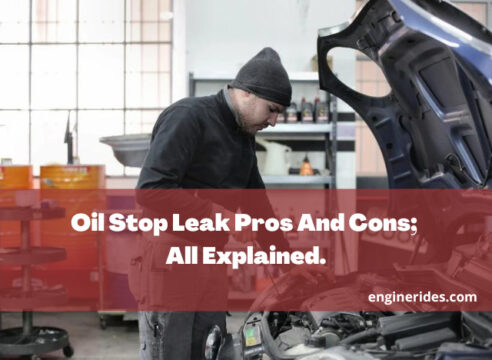
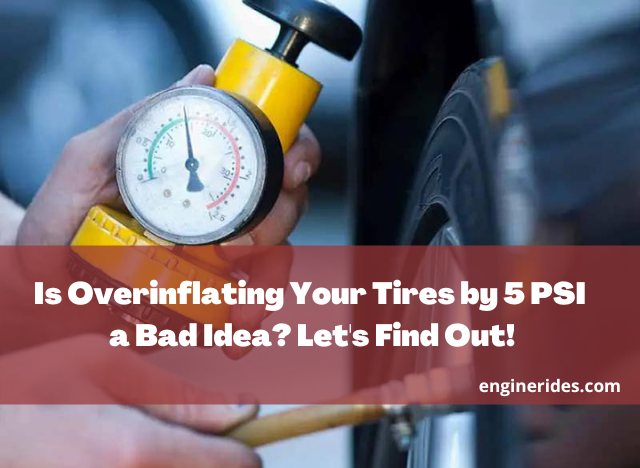

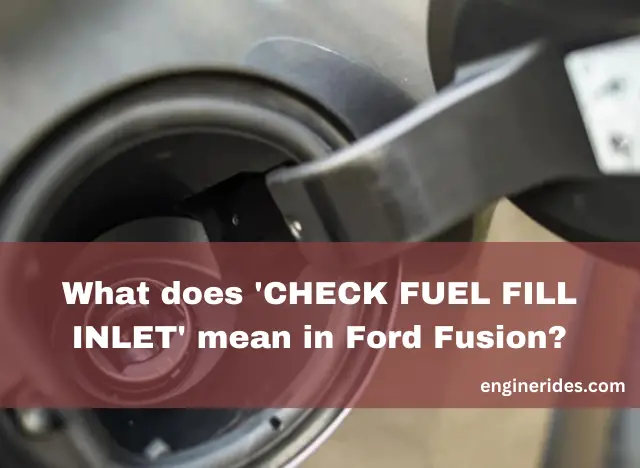
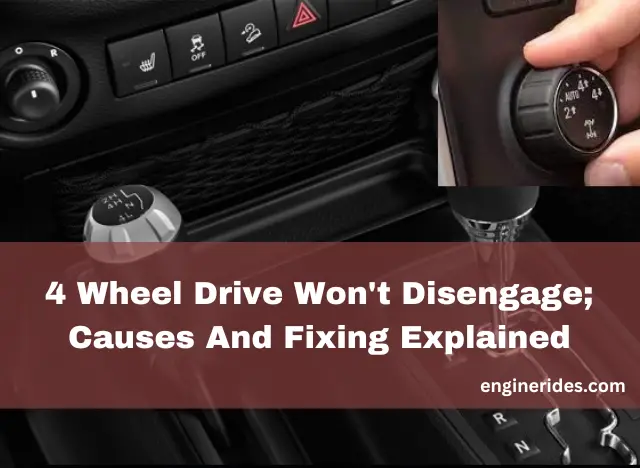
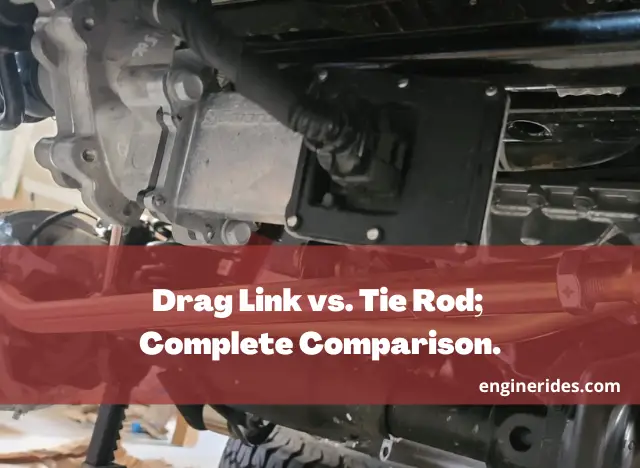
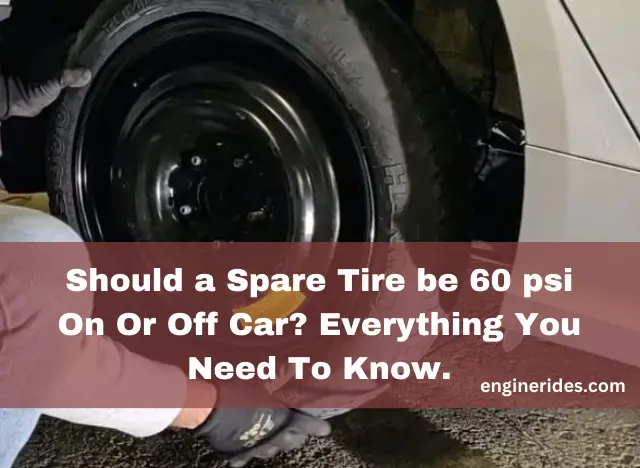
One Comment